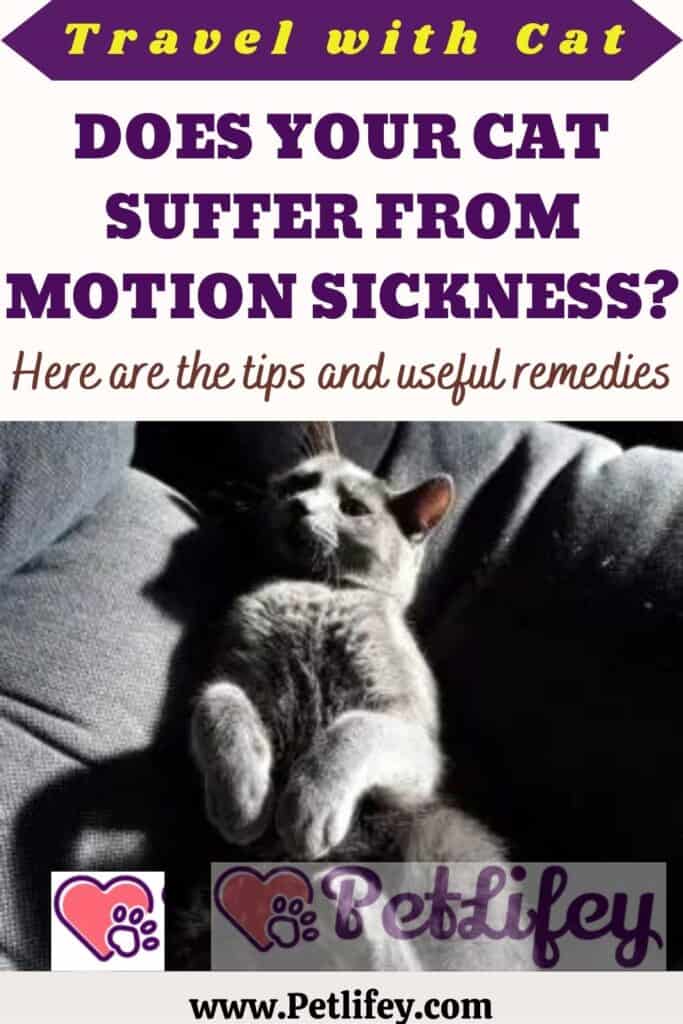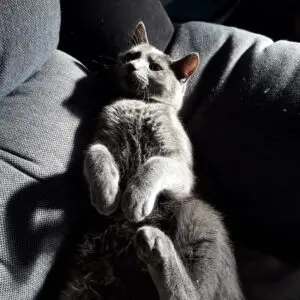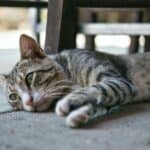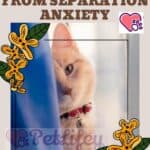
If your cat is suffering from stress or motion sickness, the car journey can be anything but pleasant. Here are the tips and remedies to travel better together.
The cat is a very habitual animal, it loves its spaces and its routine: therefore a journey can be a source of stress. We have thought of everything to make the journey enjoyable: from toys to baby food to the collar and yet the journey could be more traumatic than expected. We hadn’t considered that, even for relatively short journeys, the cat may have problems staying in its carrier for some time. Whether they are problems deriving from anxiety and stress or worse from motion sickness, better known as motion sickness, how can we do not to give up the trip with our feline friends? Here is a series of practical and useful tips to be adopted when we are in the car with our cat.
Car sickness: how to recognize the symptoms
First of all, it is good to distinguish between true motion sickness or motion sickness and what is improperly considered as such, although it derives only from simple stress or anxiety.
Motion sickness from motion sickness or motion sickness: in cats it originates from the continuous stress of the inner ear. Traveling by car continually stimulates disturbances in the vestibular apparatus, which is responsible for its balance. The symptoms that cause motion sickness from motion sickness are the same as those that affect humans: of course, first and foremost they will have dizziness, accompanied by nausea, vomiting and a constant meowing. We can also notice effects in the respiratory system with a significant increase in respiration and a principle of tachycardia. In short, it is not a simple annoyance, but a real malaise.
Stress-induced car sickness: Known for its desire for independence, cats do not like to have their freedom restricted. As comfortable as the pet carrier is, it is still a cage for him. So being locked up in this ‘cell’ could cause him to have anxiety attacks and make him aggressive.
Tips for better travel
Choose the pet carrier carefully: regardless of the duration of the journey, the cat must be transported in a special cage used for travel. It is better to pay attention to the choice of the pet carrier: that it is practical to carry, equipped with a large door so as to make it easier to take the cat out for a stop. It can be useful to cover the pet carrier with a blanket to muffle noises and lights that can shake it while traveling.
Get used to short journeys: it is better not to start with a journey of hours. For the first few times it is advisable to bring the cat into the stationary car and start familiarizing him with the carrier and the passenger compartment. After you can proceed with short trips, small trips to get him accustomed gradually to progressively longer distances. It seems that if they are used to travel since they were puppies, as they grow up they will have less and less car trouble.
Comfortable environment: pay attention to the passenger compartment and make it more liveable for our cat. It is important to bring his toys with us to distract him and not to travel with high air conditioning or blaring music. Also, never put the cat in front of the air vents: it could only harm their health.
Food and water: it is important that the cat has his last meal at least three hours before the trip, to avoid problems with nausea and vomiting. Especially in the summer months, it is essential to hydrate it with a little water but frequently.
Frequent stops: especially if it is a long journey, it is advisable to stop at least every two hours and get it out of the carrier. Beware of the cat: he could try to escape as soon as he has the door open.
Practical remedies for motion sickness

Homeopathic medicines: Bach Flowers Rescue Remedy with instant calming effect against anxiety and stress. On the market, Coccolus 7 or 9 CH is sold in granules to be dissolved in water and administered half an hour before leaving. Their composition of ginger, Icelandic lichen and passion flower makes them an excellent anti-nausea remedy for the digestive system of the cat. Finally, you can buy the pheromone spray, to be sprayed directly on the pet carrier: it gives the cat relaxation and tranquility, as they will smell a familiar smell on their surroundings.
Anti-nausea and anti-stress drugs: on the advice of the veterinarian, you can buy, even without a doctor’s prescription, medicines that have a calming effect on our cat’s nausea and stress. These are Benadryl, Dramamine and Bonine and anti-stress sedatives such as Acepromazine and Phenobarbital: it is advisable to try homeopathic remedies first and, in case of failure, to adopt the aforementioned products.
The remedy that can prove most useful is to reassure our cat: after all, who better than us knows their cat? He himself wishes to be reassured by his master. If we notice agitation and stress in him, let us caress him and keep the carrier next to us or, if we are passengers on our knees. Our cat will finally feel protected and safe.






